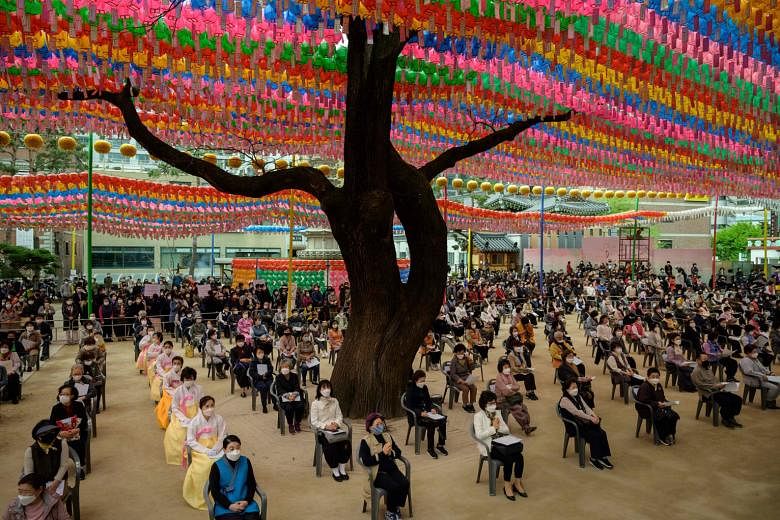Ten minutes. That is all it takes for South Korea to track the travel history of a coronavirus patient, using a new system that analyses the person's credit card transactions and mobile phone location records.
A manual epidemiological survey would have taken 24 hours to complete.
The Covid-19 Smart Management System (SMS), however, can instantly map out a virus transmission route and identify potential infection hot spots using big data provided by 28 organisations, including the police and telecommunication companies.
SMS was jointly developed by the Korea Centres for Disease Control and Prevention (KCDC), the Ministry of Land, and the Ministry of Science and ICT in two weeks and rolled out on March 26 - a month after the number of cases spiked due to mass infections within a church located in south-eastern Daegu city.
KCDC director Park Young-joon said SMS "gives a lot of help in our response to contain Covid-19". It was able to identify and isolate potential cases early, and openly share the patients' travel history to help other citizens stay safe.
Once the country with the second highest number of infections, South Korea flattened the curve in just two months.
Just 14 new cases were reported on Tuesday - a far cry from the daily peak of 909 in late February. The total tally stands at over 10,700, with 247 deaths.
South Korea's success in containing the outbreak - without resorting to drastic measures such as a lockdown - lies in widespread testing, aggressive contact tracing, strict quarantine and vigilant social distancing.
Mass testing was more efficient through the use of artificial intelligence to read chest X-rays, drive-through test stations which can complete a test in 10 minutes, and a self-diagnosis mobile app to keep track of the health of foreign visitors.
A global positioning system-enabled app monitors the movement of people to enforce quarantines at home or at designated facilities.
An emergency broadcasting service allows the authorities to send messages to mobile phone users to warn them to avoid areas visited by confirmed patients as part of social distancing measures.
Ms Jean Lee, Korea expert at the Washington-based Wilson Centre think-tank, praised South Korea's use of technology and whole-of-country coordination and communication efforts.
"It has allowed South Korea to gain control over the outbreak without completely shutting down the country - or its economy," she wrote in a blog.
The wide use of invasive surveillance technology, however, has raised concerns over privacy infringement, stigmatisation and cyber bullying, as patient data went viral.
The South Korean authorities insist that openness is crucial in fighting a public health crisis and that a consensus to prioritise public health over privacy was reached after the deadly Middle East respiratory syndrome outbreak in 2015.
South Korea has since revised its Infectious Disease Control and Prevention Act to allow the government to disclose information that could prevent the spread of an infectious disease, including movement paths and transportation means.
The revised law also allows the authorities to access patient data - including credit card transactions and travel, medical and location records - from public and private organisations.
Mr Oh Jeong-hyeon, a South Korean scholar at the Wilson Centre, said Covid-19 is a national emergency.
"By prioritising the national good, everyone will benefit," he said.











